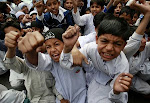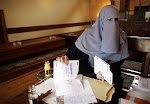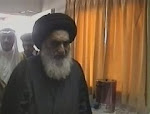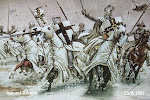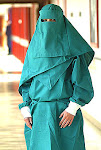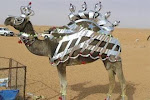THIS IS JUST FUCKING STUPID.
"Muslim inmates get new clothes if dog sniffs cell."
Muslim prisoners are being given fresh clothes and bedding after sniffer dogs search their cells – because they view the animals as unclean.
The inmates say their bedclothes and prison uniforms must be changed according to Islamic law if they have come anywhere near dog saliva.
Government rules mean warders are having to hand out replacement sets after random drug searches to avoid religious discrimination claims.
The dogs have also been banned from touching copies of the Islamic holy book the Koran and other religious items.
Prisoners are handed special bags to protect the articles.
Now some staff and other prisoners are incensed by what they claim is special treatment.
A source at Dover prison said: “It seems ridiculous that staff have to go out of their way to treat these prisoners differently.
“Some of the other inmates are not happy that they have to make do with the same old bedding.”
John Midgley, co-founder of the Campaign Against Political Correctness, added: “If people think others are getting different treatment, they are bound to be upset. Perhaps the only fair way to do this is to allow everyone to have their bedding changed.”
Philip Davies, Tory MP for Shipley in Yorkshire, said: “Another way for people not to have their cells searched for drugs is not to commit crime in the first place. If you commit a crime and go to prison, there are certain things which you expect to happen.”
The jail policy emerged after an illegal immigrant awaiting deportation at Dover prison asked its bosses to clarify the rules on sniffer dog searches.
In reply to the letter in prisoners’ magazine Inside Time, the Ministry of Justice’s Rosemary Hanna wrote: “We are aware that if dog saliva comes in contact with the clothing or religious artefacts of a Muslim, it renders these items defiled. As such, a prisoner must be allowed to change clothing if this occurs.”
She added: “Dogs used to search cells should not be allowed to touch holy books and artefacts.
The prisoner should be allowed to identify and remove religious artefacts from their cell so that the supporting staff can search them by hand before the cell is searched. It is also good practice to issue prisoners with a clear plastic pouch to cover holy books and artefacts.
“Also, bedding should be changed where the prisoner feels that it has been defiled.”
A leading imam, Ibrahim Mogra, said the policy was “very sensitive and sensible”.
He said: “We would expect the religious requirements and needs of all our diverse religious communities to be accommodated.”
Just like Sharia law doesn't.
The row comes after some Muslims argued they should not be touched by sniffer dogs trained to spot terrorists at railway stations.
Last month it was revealed that the Association of Chief Police Officers proposed that police dogs wear bootees on their paws when searching Muslim suspects’ homes.
12 years ago





